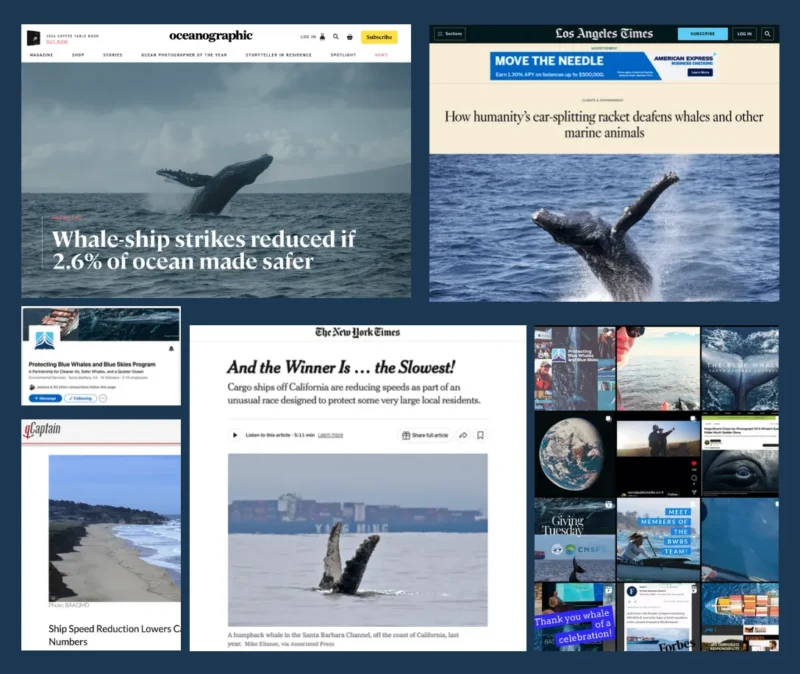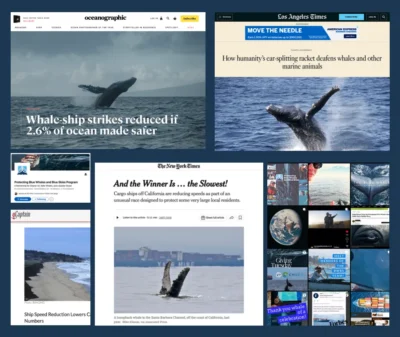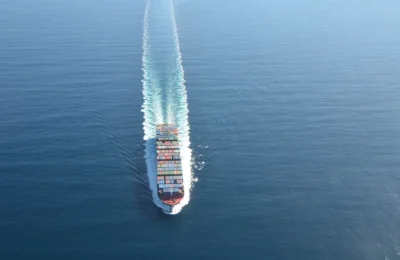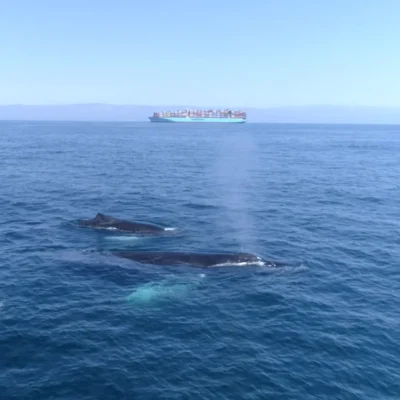The Latest

2024 Season Press Report
July 03, 2025

Assessing approaches for ship noise reduction within critical whale habitat
November 22, 2024

Ship collision risk threatens whales across the world’s oceans
November 21, 2024
Searching

2024 Season Press Report
Summarizes 2024 press coverage about the program
03 Jul 2025
Download Report

Assessing approaches for ship noise reduction within critical whale habitat
(ZoBell et al.)
22 Nov 2024
Read The Article

Ship collision risk threatens whales across the world’s oceans
(Nisi et al.)
21 Nov 2024
Read The Article

Pacific Maritime Management Services
This tool tracks and manages vessel transits to optimize port/vessel operations, enhance maritime safety and reduce environmental impacts
03 Jul 2024
See Tool

SmartWay
A Blue Whales Blue Skies Partner, is an Environmental Protection Agency program to help cargo owners improve their supply chains.
03 Jul 2024
See Tool

Whale Safe
A website hosted by the Benioff Ocean Science Laboratory shows vessel transit and whale data in the Southern California Bight Region.
03 Jul 2024
See Tool

NOAA Voluntary VSR Advisory
The National Oceanic and Atmospheric Administration (NOAA) with support from the United States Coast Guard (USCG) and Environmental Protection Agency (EPA) annually issues voluntary Vessel Speed Reduction (VSR) requests that go into effect May 1 to December 15 off San Francisco, Monterey, and Southern California.
03 Jul 2024
See The Tool
